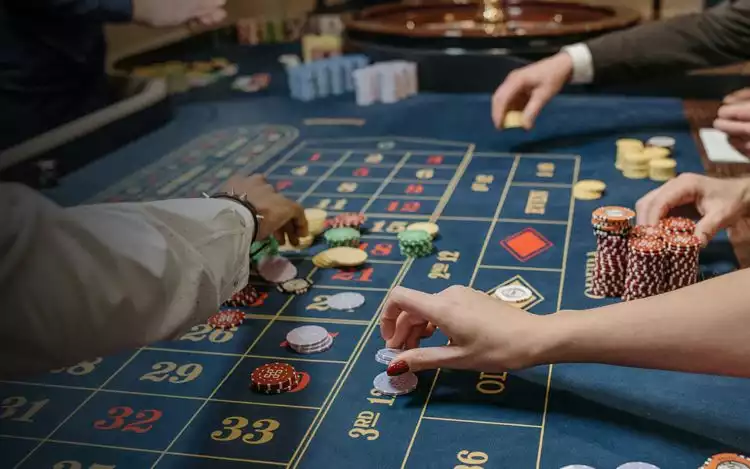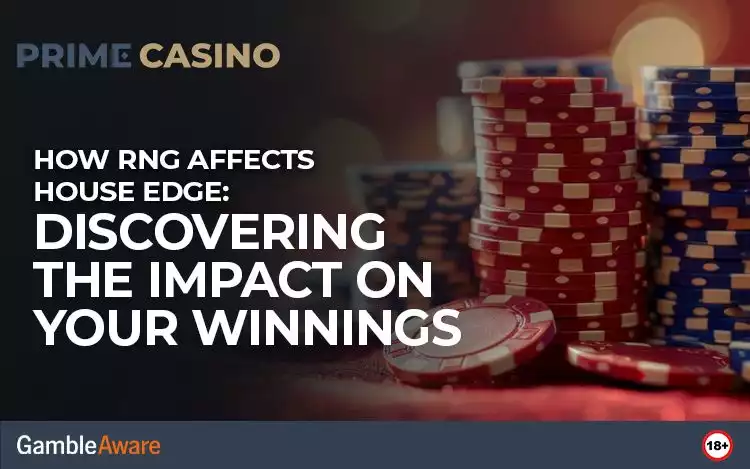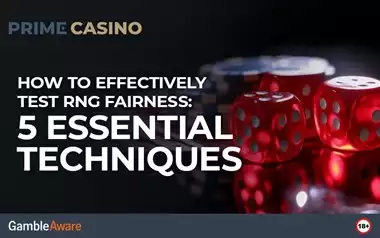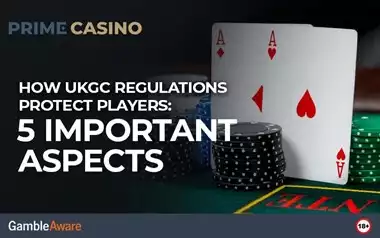Random Number Generators (RNGs) and house edge are two key factors that determine how innovative UK casino games work and affect a player’s chances of winning. While RNG ensures fairness by creating unpredictable results, house edge guarantees long-term profitability for casinos. Understanding how these two elements interact can help players make informed decisions about their gameplay.
By the end of this article, you’ll learn:
- How RNG works and why it’s essential for fair play
- The relationship between house edge and RTP
- How different casino games have varying house edges
- Strategies to maximize your chances while playing
- Common myths about RNG and house edge debunked
Let’s start by exploring what RNG is and why it’s fundamental to online casino gaming.
What is RNG and How Does It Work?
RNGs are algorithms designed to produce random and unpredictable outcomes. In online casinos, they are used to determine results in slots, card games, and digital table games. Because RNG operates independently for every spin or hand, past outcomes have no influence on future results.
How It Works:
- RNG generates thousands of number sequences per second.
- The outcome is determined the moment a player presses ‘spin’ or deals a card.
- Independent auditors like eCOGRA and iTech Labs verify RNG fairness to ensure casinos can’t manipulate results.
A great way to visualize how RNG works is by thinking of a simple coin flip. Each time you flip a coin, the result is either heads or tails, completely independent of previous flips. Just because you landed on heads five times in a row doesn’t mean the next flip is more likely to be tails as each outcome is separate and unpredictable.
Now that we understand how randomness is maintained, let’s discuss how casinos still ensure a steady profit through house edge.
The House Edge: A Casino’s Built-in Advantage
House edge is the mathematical advantage that ensures casinos generate long-term profits. It’s built into every casino game, dictating the percentage of player bets that the casino keeps over time.
According to the UK Gambling Commission (UKGC), casino games such as roulette, blackjack, and punto banco are "bankers’ games"—games of unequal chance where the structure inherently favors the casino. The house edge represents the percentage that a casino expects to keep on average from each hand or spin, given normal patterns of play.
Additionally, gaming machines must clearly display their RTP percentage and indicate whether they use a compensated or random system. This transparency allows players to make informed choices about the games they play.
How It Works:
- House edge is the opposite of RTP (Return to Player). If a slot has a 96% RTP, the house edge is 4%.
- Different games have different house edges. Blackjack has a lower house edge (0.5-1%) compared to roulette (2.7-5.26%) or slots (4-10%).
- The longer a player plays, the closer their results align with the house edge percentage.
This means that for every £100 wagered, a slot game with a 4% house edge will return £96 to players in the long run, with the casino keeping £4. Just keep in mind that specific house edges can vary based on the casino and game variations. As this article is mainly for educational purposes or decision-making, it's always good to check the specific rules and payout percentages of the games at the casino in question.
Understanding house edge helps players make better choices when selecting games. But how does this interact with RTP, volatility, and actual winnings? Let’s dive in.
How RNG Influences House Edge
While RNG guarantees fairness, the house edge is embedded within the game’s rules. Here’s how RNG affects the house advantage:
- Game Design: Developers set payout structures and probabilities to ensure long-term profitability.
- Payout Ratios: Certain high-paying symbols or card combinations are designed to appear less frequently.
- Return to Player (RTP): Expressed as a percentage, RTP indicates the theoretical return a game provides over time. A slot with a 96% RTP has a 4% house edge, meaning players can expect to receive £96 back from every £100 wagered over thousands of spins.
Why Some Games Have a Higher House Edge than Others
Not all casino games are created equal when it comes to the house edge. Several factors determine why some games favor the house more than others:
- Game Rules: Strategy-based games like blackjack allow players to make choices that can lower the house edge. Games purely based on RNG, like slots, tend to have a higher house edge.
- Bet Types: In roulette, a straight-up number bet has a higher house edge than an even-money bet like red/black or odd/even.
- Volatility: High-volatility slots offer larger payouts but pay out less frequently, impacting the long-term house edge.
Understanding these factors allows players to make smarter game choices that maximize their entertainment and winning potential.
How Understanding House Edge Can Help Your Strategy
Knowledge of RNG and house edge isn’t just theoretical—it has practical applications that can enhance your gameplay. Here’s how:
- Choose the Right Games: Opt for games with lower house edges, such as blackjack with professional dealers, baccarat, and European roulette, to improve your winning potential.
- Manage Your Bankroll: Understanding the house edge helps you set realistic expectations and plan your bankroll accordingly.
- Use Optimal Strategies: In skill-based games like blackjack, applying the right strategy can lower the house edge significantly.
- Check RTP in Slots: Playing slots with higher RTP percentages improves your chances of better returns over time.
- Leverage Bonuses & Promotions: Taking advantage of free spins, deposit bonuses, and other casino promotions can help mitigate the house edge.

Common Myths About RNG and House Edge
There are many misconceptions surrounding RNG and the house edge, often leading players to make uninformed decisions about their gameplay. Some believe casinos can manipulate RNG to prevent payouts, while others think that a game is 'due' for a win after a long losing streak. Understanding the truth behind these myths can help you approach casino gaming with a clearer perspective.
Myth 1: Casinos Can Manipulate RNG to Prevent Wins
Fact: Licensed casinos operate under strict regulations that require independent testing of RNG software. Any manipulation would result in loss of licensing and severe penalties.
Myth 2: A Slot Machine That Hasn’t Paid Out Is “Due” for a Win
Fact: RNG ensures that every spin is independent. A machine that hasn’t paid out in a while has the same odds of winning as it did before.
Myth 3: Using Betting Systems Can Overcome House Edge
Fact: Strategies like the Martingale system may work short-term but don’t change the inherent house edge. Long-term results will still align with the game’s statistical advantage.

By debunking these misconceptions, you can develop a more informed approach to gambling—whether you play for strategy, entertainment, or excitement. Much like the 13% of players who prefer slots over table games simply because they find them more enjoyable, you may find your own reason for playing once you have a clearer understanding of how the rules of the games truly work. Finally, let’s summarize key takeaways from this guide.
Final Thoughts
RNG ensures fairness in online casino games, but the house edge is what guarantees the casino remains profitable. While you can’t eliminate the house edge, understanding how it works allows you to make smarter gaming decisions. By having the right mindset, managing your bankroll wisely, and using optimal strategies, you can maximize your enjoyment and winning potential.
Key Takeaways:
- RNG ensures fairness and unpredictability in online casino games.
- The house edge determines the casino’s long-term advantage and varies by game.
- RNG and house edge interact to shape potential winnings.
- Different games have different house edges based on rules and volatility.
- Understanding house edge helps players improve strategy and bankroll management.
As Nikos Dandolos once said, “The house doesn’t beat the player. It just gives him the opportunity to beat himself.” Stay informed, play smart, and always gamble responsibly. Transcend your gaming experience and join Prime Casino today!








